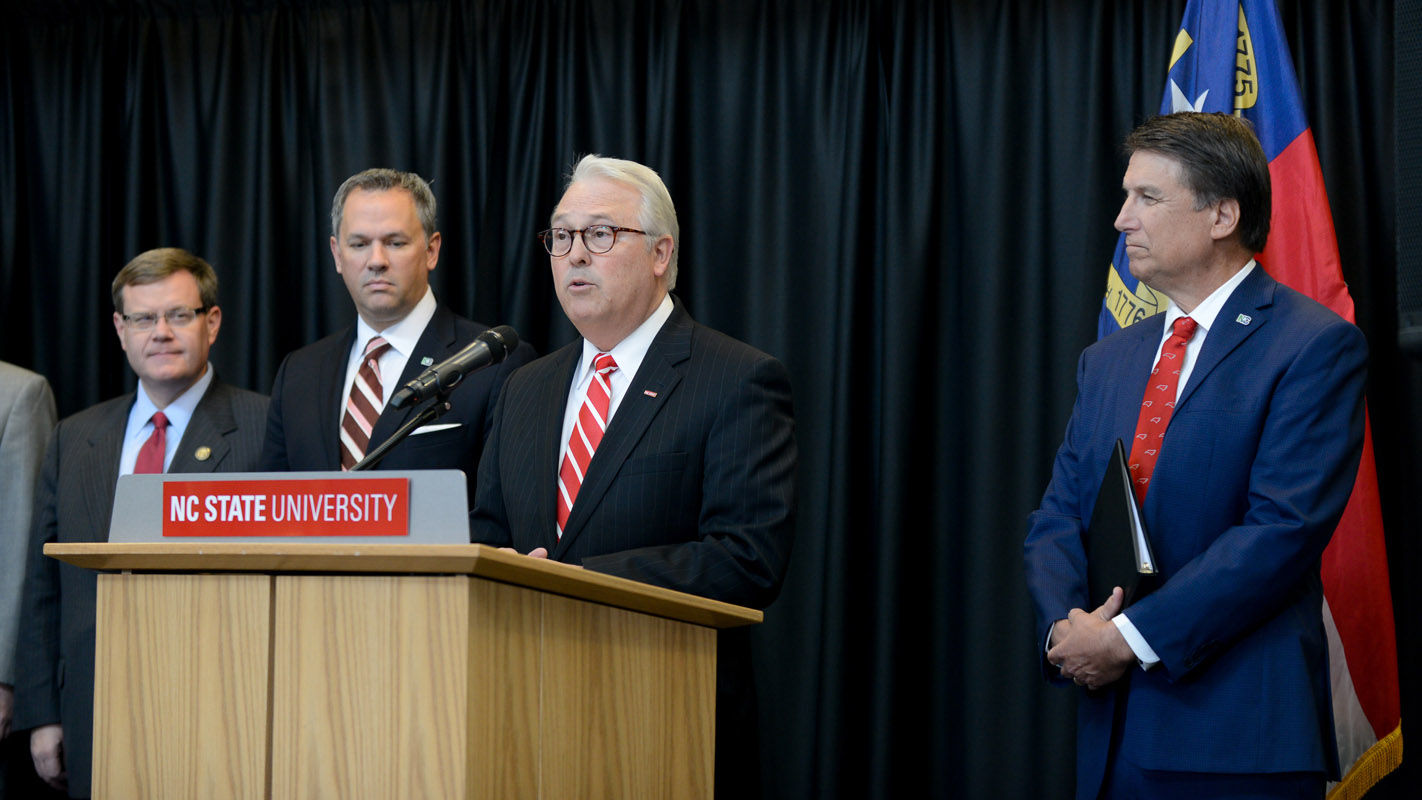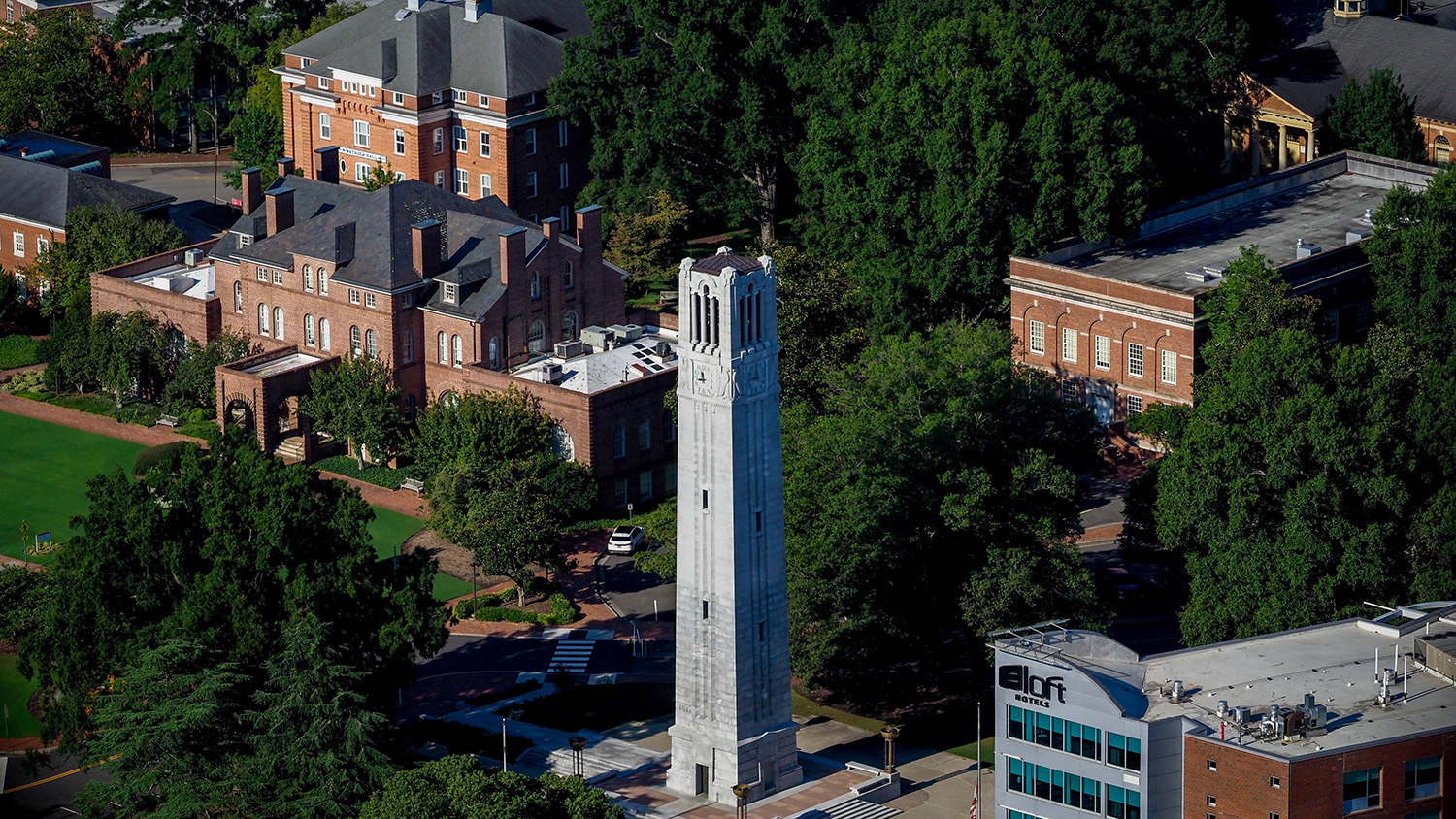On March 15, North Carolina voters will decide on the $2 billion Connect NC Bond, which will benefit every public higher education institution in the state. Specifically, NC State will receive more than $160 million for two critical projects on Centennial Campus: the Engineering Oval and the Plant Science Initiative.
Certainly, there are opportunities to participate in the process by registering to vote here. Registration ends on Feb. 19. Absentee voting began Jan 25 and early voting begins March 3.
However, as members of a state agency, NC State staff, faculty and most administration are forbidden by law from engaging in advocacy for political parties, campaigns or causes on behalf of the university. (A few approved members of upper administration, such as Chancellor Randy Woodson and the deans of engineering and agriculture and life sciences are exempt from this prohibition.)
However, NC State is free to carry out its educational mission by engaging in some political activities and informing the voting public about the effects of the proposed bond, such as the university’s Connect NC Bond website.
NC State’s Office of General Counsel has prepared a primer on what university employees can and can’t do during the campaign season.
- Voter Guides, Questionnaires and Polls: NC State may conduct certain activities aimed at educating voters about candidates or issues. This may include the preparation of voter guides, candidate questionnaires and public opinion polls. The intent is to create a more informed electorate, rather than advocate for a particular candidate, party or cause.
- Voter Registrations and Get-Out-the-Vote Efforts: NC State may also make efforts to register voters and conduct events to increase participation in the political process. These efforts must be nonpartisan, not targeting voters of a particular party or candidate.
- Information and Data: NC State may provide information to political candidates. This may be data, conclusions or information of a substantive nature on topics such as agriculture, economics or education.
- Issue Advocacy: Additionally, NC State is permitted to engage in issue advocacy. This means that NC State may take positions on non-political, public policy issues—which is distinct from endorsing a political or partisan cause. For example, NC State can engage the campus in creating a more sustainable future.
- Hosting Candidates: Finally, NC State may host candidates for public appearances and debates. Single party appearances are permitted on the university campus provided they are sponsored or hosted by a registered student organization and all expenses related to the event, if any, are paid by the candidate, political organization or student organization. University facilities may be used for political events in compliance with the University’s Facilities Use Regulation, REG 07.25.11.
All employees have the right to freely express their views on any subject, including advocacy for or against candidates for public office and for or against political issues. Your status as an employee does not change your fundamental rights as a citizen to engage in the political process. This means that you are free to express your opinion, register to vote, participate in campaigns and elections, solicit or make campaign contributions, or become a candidate for political office.
However, these activities must be conducted independently from your NC State employment and consistent with university policy. The following prohibitions help maintain independence from your personal political actions and your NC State employment.
- Performing Job Duties: Participation in political activities cannot take place during a period of time during which you are expected to perform services for NC State. Rather, activities should take place after business hours or while taking personal leave (i.e. annual, bonus or special).
- Using Community Service Leave: Employees may not use Community Service Leave (CSL) to campaign or to engage in partisan political activities. However, employees may use CSL to volunteer to work inside the polls to facilitate the voting process for the state or local Board of Elections. Simply, employees cannot use CSL for handing out campaign brochures, transporting voters or conducting any other partisan political activity.
- Using University Resources: University resources may not be used for any political activities. For example, you cannot use university vehicles, equipment, campus mail, postage, photocopiers, fax machines or computers to engage in political activities. This includes sending emails from your NC State email address. Sending emails from your NC State email address constitutes use of university resources, and use of NC State resources for your individual participation in political activities is prohibited.
- Conducting Activities as an Individual: Because NC State as an institution may not endorse political candidates, parties or causes, you as an employee should not conduct activities that may be perceived by others as university support, opposition or endorsement of a candidate, party or cause. For example, you should not distribute campaign material door-to-door wearing an NC State shirt if a person may reasonably believe that you are representing NC State and communicating the university’s endorsement of the candidate, as opposed to your own personal support of the candidate. When participating in political activities, you should be aware of any potential confusion and, when necessary, clarify that you are participating as an individual and not on be-half of the university.
- Misuse of Authority: Finally, NC State employees are prohibited from misusing the authority of their university positions for political purposes. This means a university employee may not use his/her position to endorse a political candidate, party or cause. An employee misuses his/her position by coercing, soliciting or compelling another employee to support, contribute to, or oppose a political candidate, party or cause. For example, a supervisor may not hold a staff meeting where they encourage their employees to vote for a particular county commissioner. Their position as a supervisor may lead employees to feel like they must support the candidate or face professional repercussions.
In summary, employees are permitted to engage in political activities so long as they are conducted independently from their employment. Activities should be conducted using personal time, non-university resources, in your individual capacity and without using the authority of your position.



